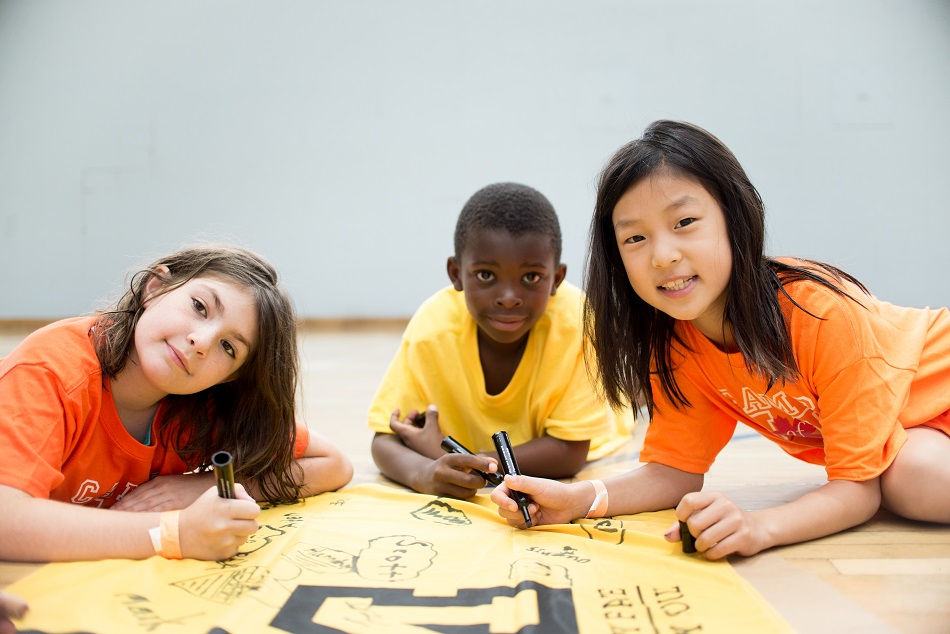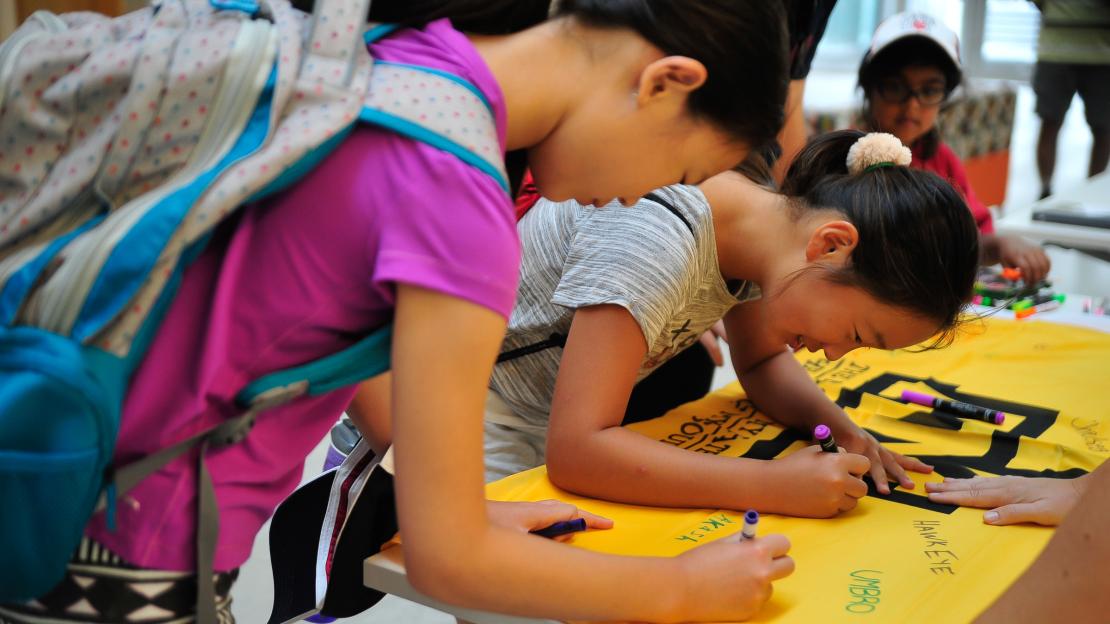Kids from University of Toronto summer camps have good luck wishes ready for competitors in the Invictus Games when they arrive in Toronto and the Scarborough campus later this month.
Campers from the U of T Scarborough and St. George campuses spent a day signing Invictus flags with special messages for the active duty or veteran service members participating in the 2017 Games.
Beginning September 23, 550 athletes from 17 nations who have either become ill or injured because of their service will compete for eight days showing what they can do past injury. Prince Harry established the Invictus Games – meaning unconquered – in 2014 to help inspire recovery and rehabilitation of the competitors and generate a wider respect for those who serve.
University of Toronto Vice-President and Principal at University of Toronto Scarborough Bruce Kidd says the east-end campus is “proud to be a host site for three events at the Invictus Games.”
The Toronto Pan Am Sports Centre, one of Canada’s newest aquatic centres for high-end training and competition on the Scarborough campus, is the venue for three adaptive sporting events. These events closely resemble the sport played by able-bodied athletes but have some modifications to better meet the needs of participants.
The Pan AM Sports Centre will hold the sitting volleyball preliminaries on September 26, the wheelchair basketball preliminaries on September 28 and 29, and swimming in one of its two Olympic-sized pools on September 29 and 30. The Invictus Games also includes wheelchair rugby, a variety of track and field events and golf, which is new this year.
“These are competitors who have sacrificed for their countries and persist in the face of life changing injuries. Their dedication and persistence inspires the best in us all,” says Kidd. "We look forward to welcoming all participants and their support teams and wish them all the very best in their events.”

Bryn MacPherson, Assistant Vice-President, Office of the President and Chief of Protocol, says it was great working with the Invictus team to find the best ways to welcome and engage with the athletes. “Having the opportunity to get our summer camp children involved in signing flags was a way to connect the kids with the Games and do something special for the competitors at the same time. We offered to take as many flags as we could for the three campuses.”
Camp U of T Director (St. George Campus) Quinn Harrison says introducing the flags was also a great way to reinforce the values of the camp, including inclusivity. “It was inspiring to watch kids become engaged with the idea of the Invictus Games. You could tell just by listening to them as they moved around that putting their names on the Invictus flags made them feel closer to the athletes and the games itself.”
What is adaptive sport?
Adaptive sport (or parasport) is competitive sport for individuals with disabilities. Although it is like the sport played by able-bodied athletes, the rules or equipment may be modified for the participants.
In competitive team sport, participants are typically grouped together based on their disability, whether it’s physical, cognitive/developmental delays or both so participants are competing against players with the same skill level.
Adaptive sport is often incorporated into rehabilitation programs for people who are ill, wounded or injured. Adaptive sport competitions like the Invictus Games help active duty and veteran service members overcome their physical or mental health illness or injury. Through adaptive sport, these men and women:
• Develop a sense of belonging;
• Show increased self-esteem;
• Create an outlet for excess energy;
• Foster a sense of camaraderie with other wounded service members; and
• Experience an improved quality of life.
